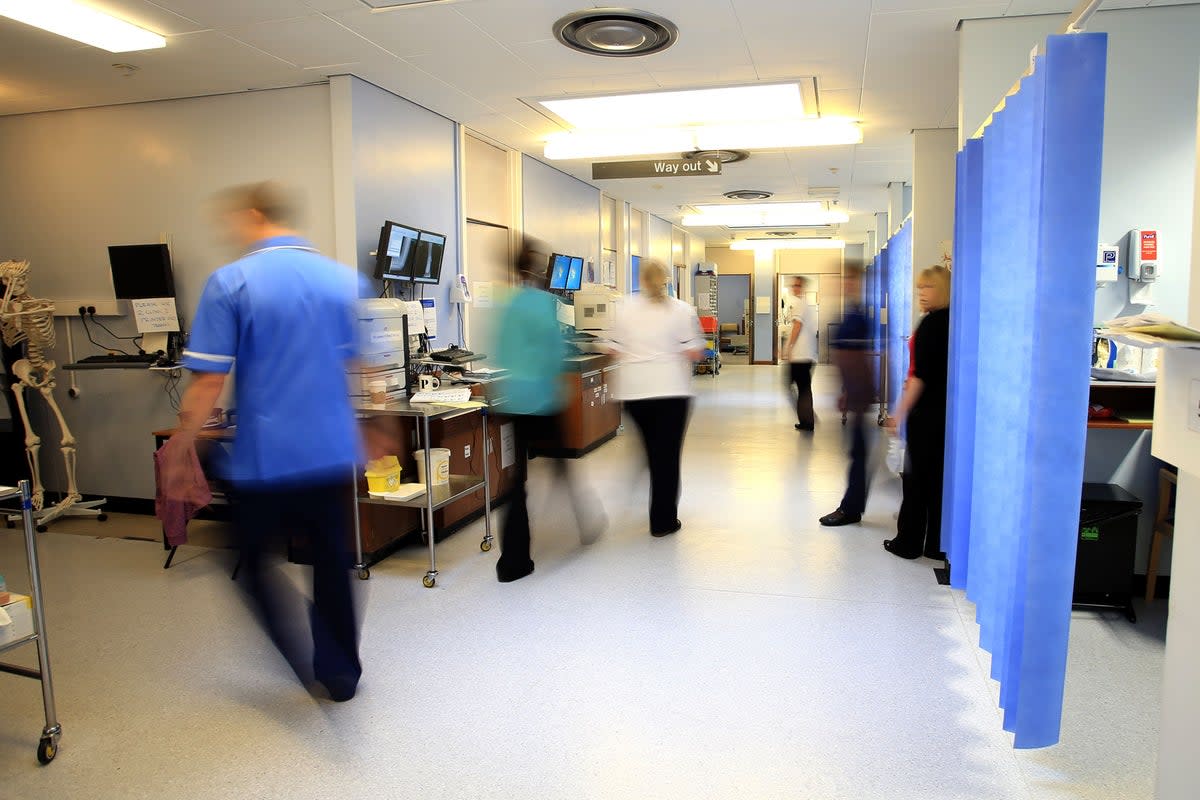NHS ‘war rooms’ to fight winter health service crisis amid nurses’ strike threat

NHS chiefs have set up “war rooms” to deal with the winter health service crisis which threatens to be worsened by strikes by nurses and ambulance crews.
Dr Vin Diwakar, medical director for secondary care for NHS England, stressed that these new “air traffic control” centres would be fed “real time” data on bottlenecks in the health service.
In worrying comments, he said that hospitals in England were now “full”, with 13,000 patients currently fit for medical discharge but unable to leave wards due to other pressures such as the social care crisis.
He told Sky News: “Nineteen out of 20 beds are full at any one time.
“If a hospital is full, you can’t transfer patients from the emergency department who need admission.
“If the emergency department is full and over-crowded you can’t transfer patients from ambulances into the hospital.
“That means that there are delays in ambulances.”
He added: “That is why today we are announcing that every part of England now has a war room or air traffic control centre.
Staff will be able to see “real time” data on where ambulance queues are building up, waiting times, bed occupancy and staffing levels.
The “war rooms” will be run by senior clinicians and managers so decisions can be made to divert ambulances or organise “mutual aid” between hospitals, and more support for staff.
Health officials hope that the “war rooms” will help the NHS to divert resources to trusts whose emergency services are under strain.
It follows Wednesday’s announcement that more than 100,000 ambulance workers have voted to strike across nine trusts in England and Wales. Workers at the London Ambulance Service (LAS) will not be involved in the strikes.
The Royal College of Nursing (RCN) last week confirmed that thousands of their members would a walkout across Britain’s hospitals on December 15 and 20 in a dispute over pay, raising fears that thousands of operations and appointments could be cancelled next month.
Emergency are will not be impacted by industrial action, the union has said, and some of the most serious cancer cases could still be treated.
In London, nurses will strike at four trusts - Great Ormond Street, Guy’s and St Thomas’, Imperial College and the Royal Marsden. Industrial action will also take place at the North Central London integrated care board (ICB).
Several other health unions are also balloting for strike action, including unions representing midwives, physiotherapists and hospital cleaning staff.
Dr Diwakar, who was NHS chief for London, said these “war rooms” had been used during the Covid pandemic.
“The difference today is that rather than reacting to circumstances which is what we did during and before the pandemic in response to winter pressures, these are now going to be open throughout the day and also manned overnight,” he explained.
On the scale of the crisis, he added: “I have been a doctor for 30 years and this is one of the most challenging winters certainly that I have ever experienced.”
Steve Brine, chairman of the Commons health and social care committee, said the NHS was being hit by a “perfect storm” with the ongoing impact of the Covid pandemic, the spread of flu, record demand, and now threatened strikes.
He added that “in some ways it is possibly more concerning” than the 1970s “Winter of Discontent” as legal changes had made it harder to trigger strikes so this highlighted the level of “deep unhappiness” with pay and conditions, but he warned of the impact of walkouts on the NHS.
GMB trade union chief Andy Prendergast did not rule out coordinating industrial action with other unions and described upcoming NHS strikes as “a cry for help”.
NHS bosses fear that coordinated strikes across multiple unions could cause serious disruption in the health service.
Health and Social Care Secretary Steve Barclay on Wednesday reiterated his claim that pay demands being made by NHS unions were “unaffordable” and that strikes were in “nobody’s best interests as we approach a challenging winter”.
“My door remains open to discuss with the unions ways we can make the NHS a better place to work,” he said.
The strikes come as the NHS faces pressure across its services, with record waits for ambulances and over 7 million people on a waiting list for routine treatment.
Last week, the Standard reported how more than one in four ambulances are waiting outside London hospitals as they arrive with ill patients. Ambulance chiefs warned that patients were coming to “significant harm” as a result of delays in them being handed over to A&E.
The NHS figures show that crews had to wait more than 30 minutes in 26 per cent of the 12,184 ambulance arrivals to hospital in the capital in the week up to November 20. Nearly one in ten (9.9 per cent) waited for more than an hour.
The target is for handovers to be completed within 15 minutes. Medics have warned the dire national picture is the worst start to winter since records began.


